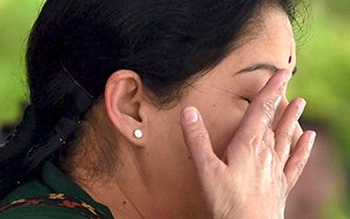Ahmedabad, Nay 19: Over 2,200 Indian nationals stranded in the UK due to the coronavirus related international travel restrictions have been flown back home during the first phase of India's biggest ever repatriation exercise, according to official figures.
Since the first special Air India flight took off from London’s Heathrow Airport for Mumbai on May 8, there have been eight routes to different Indian cities from the UK for Indian students and tourists.
Indian nationals were flown home to the cities of Mumbai, New Delhi, Bengaluru, Chennai and Ahmedabad.
“We have facilitated repatriation of 2,288 Indians stranded in the UK through eight Air India flights till 17 May. Vande Bharat Mission continues to get Indians home,” said the Indian High Commission in London.
The Vande Bharat Mission is India’s biggest ever repatriation exercise to bring back Indians from abroad who are unable to travel home due to COVID-19 related international travel restrictions.
As the second phase of the repatriation process gets underway, retired Indian High Commissioner to the UK Ruchi Ghanashyam will be among the Indians flying back to New Delhi on Thursday.
“It has been such a hectic period, but I hope to return to the UK to say goodbyes in person sometime in the future,” Ghanashyam said during a virtual farewell organised by the Indian Journalists’ Association (IJA UK) on Monday.
As the packed flights take off daily, there are some still desperately waiting their turn, including those wanting to fly to some cities that are yet to be scheduled, including Kolkata.
“I have two young daughters, elderly parents, and a wife back at home. There is no way to return to Kolkata. I am worried for my parents,” says Suvendu, who came to the UK for work but recently lost his job.
“I am really surprised there are no Kolkata flights yet, but I am hoping they will be announced in the future,” adds Dr Arpita Ray, whose father needs to fly back home.
Another group waiting their turn to return home to their families in India includes students in the Overseas Citizen of India (OCI) category, which remains suspended in India’s extended COVID-19 lockdown.
According to the regulations issued by the Indian government last month and updated last week, visas of foreign nationals and OCI cards, that provide visa-free travel privileges to the people of Indian-origin, have been suspended as part of the new international travel restrictions following the COVID-19 pandemic.
“Our plight is no different from the struggles being faced by Indian students who hold Indian passports – India is home for all us,” says Tridip, an undergraduate at SOAS University of London.
“Yes, air travel at this point of time may be a risk but we are of course ready to take all precautionary measures and undergo the mandatory quarantine period upon arrival in India," adds the 18-year-old.
“Having lived in India for the greater part of my life, India is home to me as much as it is to an Indian citizen, and just as any Indian citizen wishes for the comfort of home and family, so do I. I can only hope that the government reviews its policy on OCI holders and appeal to them to include us in their repatriation plans," says Atulit, an under-graduate student at Imperial College London.
Bianta, a student at Bangor University in Wales, adds: “Along with all of the mental stress, financially the UK is too expensive. In the coming weeks my rental agreement will expire, after which I will have nowhere to go.
“I cannot continue funding myself here in the UK as I only planned to be here till May marking the end of my course. Please help us get home. The colour of my passport does not define where my home is."
As all commercial international flights continue to be grounded, the second phase of the Vande Bharat Mission with a total of 149 flights is aimed at bringing back Indians from 40 countries. On landing in India, these travellers have a 14-day quarantine requirement at venues organised by the respective state governments.






Comments
Add new comment